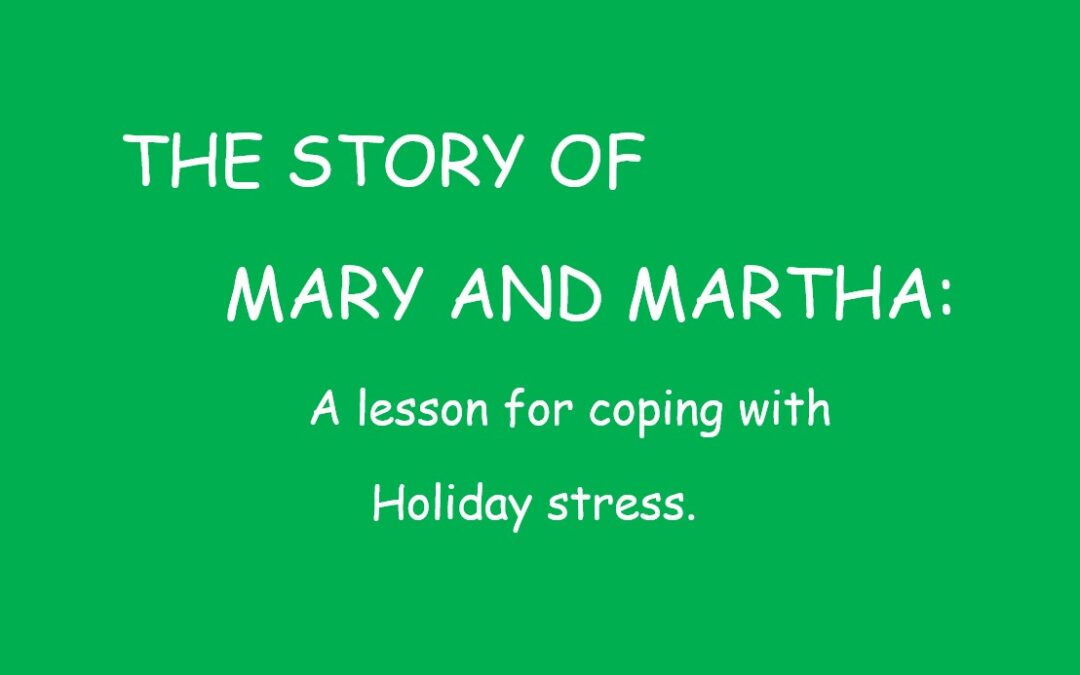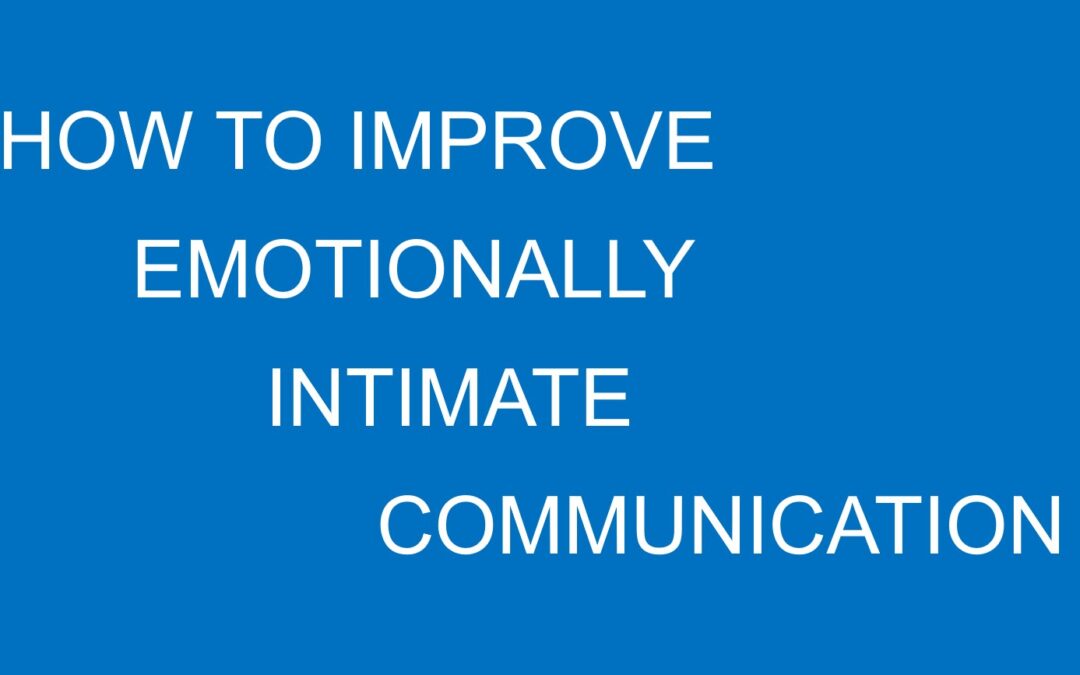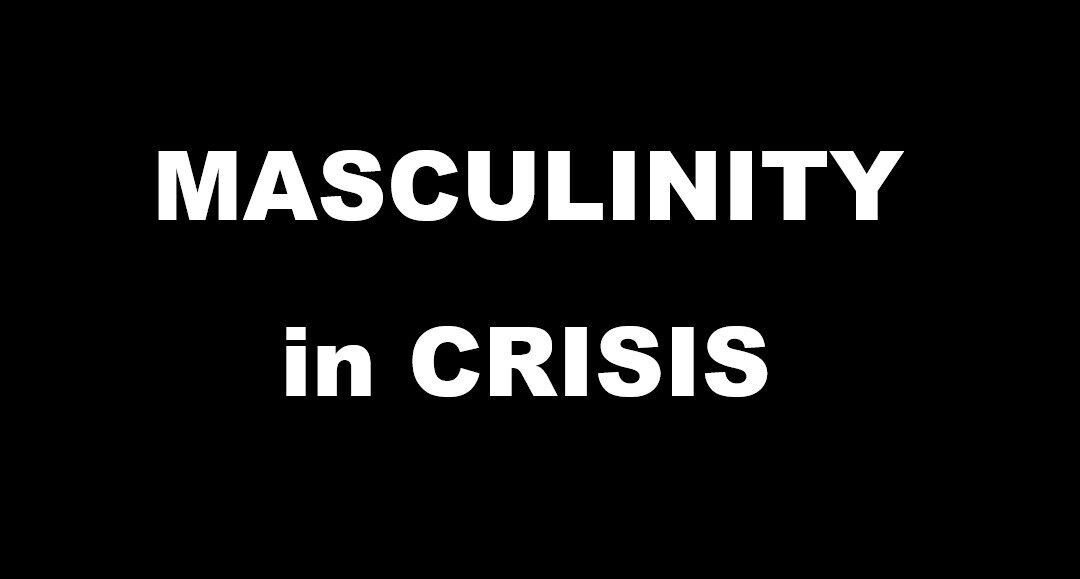
by Rev. Michael Heath | Dec 4, 2024
2024 has been a rough year. As we head toward the finish line, holiday gatherings can add even more stress. https://revmichaelheath.com/reducing-stress-around-the-holidays-a-pastoral-counseling-approach/
As a pastoral counselor, I’m asked what advice the Bible has for dealing with the holidays. Actually, one story is particularly helpful. , Indeed, the story of Mary and Martha (Luke 10: 38-42) is as relevant today as it was 2000 years ago. This beloved biblical classic has an important lesson for those who struggle with family and social gatherings at this time of year. https://uihc.org/health-topics/coping-holiday-anxiety-and-stress
THE TEXT
“Now, as they went on their way, he entered a village, and a woman named Martha received him into her house. 39 And she had a sister called Mary, who sat at the Lord’s feet and listened to his teaching. 40 But Martha was distracted with much serving, and she went to him and said, “Lord, do you not care that my sister has left me to serve alone? Tell her then to help me.” 41 But the Lord answered her, “Martha, Martha, you are anxious and troubled about many things; 42 one thing is needful. Mary has chosen the good portion, which shall not be taken away from her.” (Lk 10.38-42 RSV)

by Rev. Michael Heath | Nov 17, 2024
How long has it been since you flirted with your spouse ? If it’s been a while, here are some things to think about if flirting with your parter sounds like fun.
To begin, flirting has a some what questionable reputation due to its association with an activity conducted with someone to whom one is not married, It’s rarely talked about when considering ways to improve one’s marriage or sex life. Let me explain why it is important for both enriching a relationship and protecting marriage from infidelity.
Infidelity and Flirting
Infidelity is a huge problem for many relationships. While there are many reasons why partners cheat, not feelling appreciated and feeling taken for granted rank high on the list.
After a few years of marriage, there is a tendency for folks to slip into comfortable but not necessarily excioting routines. As a result, they stop trying to be attractive to or flirt with their mates.
Many of the efforts made while courting disappear. The way we dress, the way we talk to each other become mundane. Little surprises and considerate gestures become fewer and fewer. Thus, romance dims.
Flirting and Neuro-chemistry
By contrast, one reason that affairs occur is because they are new and exciting and energized. People involved in affairs go out of their way to make each other feel special. That special feeling is the result of a complex release of substances like dopamine, phenylethylamine and serotonin. .
This special attention is very attractive and powerful. The narcotic-like substances that the brain releases are addictive. Sadly, when that neuro-transmitter hit is not forthcoming at home, some folks look to find it elsewhere.
Behaviorally, affairs often begin innocently with flirting, that is playful gestures of attraction which are meant for amusement more than a serious intent. However, if continued, the playful can become serious and lead to an actual acting out of infidelilty.
When taken with the fact that many couples complain that their love life isn’t what it used to be, affairs, even though wrong and risky, can happen. To make matters even worse, the technology of the internet and explicit affair-arranging websites like Ashley Madison have made having sex outside of marriage as easy as making a few key strokes .
Many marriages start out with flirting but, over the years, the playful banter stopped. The good news is that couples who flirt with each other can reignite playfulness and passion as well as reduce their risk having affairs.
So, here is some information about flirting that can help you to put the spark back in your marriage and protect it from affairs..

by Rev. Michael Heath | Nov 6, 2024
Given the recent election results, I have received many panicked phone calls from folks terrified about what will happen to our country. While I do not wish to get into political discussions, I do wish to respond to those feeling anxious and provide concrete steps to take to reduce their discomfort.
Anxiety is a serious and complex problem for many people. In some cases, successful treatment requires a combination of psychotherapy and medication. For many, however, employing some basic first-aid can render significant and immediate relief. Here are four steps which, if followed, can quickly and dramatically reduce the crippling effects of panic and anxiety attacks.

by Rev. Michael Heath | Oct 17, 2024
Poor communication is a major problem in many relationships. In fact, of all the problems that bring couples to counseling, poor communication is at or close to the top . Why Do Couples Seek Marital Therapy? | Request PDF (researchgate.net)
Of course, there are different types of communication. There are simple informational exchanges like “What time will you be home for dinner?” However, emotional communication is the kind that many folks have trouble with. Rather than simple, intimate communication, i.e., honestly sharing what your’e feeling and what you want, is complicated.
There are various reasons why couples have trouble talking with one another about intimate things. To do so requires being willing to be vulnerable and willing to listen.
Here are some tips to improve your intimate communication:

by Rev. Michael Heath | Oct 4, 2024
Despite being around for over 50 years, many people are still confused about what professional pastoral counseling (PPC) is. Pastoral Counseling ? | Pastoral Counseling Syracuse NY (revmichaelheath.com)This confusion is understandable since the term is imprecise.
For example, any minister who gives guidance is, in a sense, a pastoral counselor. I wish to use the term to refer to therapists who are trained and licensed in psychotherapy and are ordained clergy.
Sadly, many people erroneously think that one has to be religious to talk to a professional pastoral counselor. As such, I want to dispel some myths and discuss what makes professional pastoral counseling unique among therapeutic approaches.

by Rev. Michael Heath | Sep 19, 2024
Anxiety and panic attacks are serious mental health problems. Over the past twenty years, neuroscientists, especially those who study the autonomic nervous system (ANS), have learned a lot about why we worry. Fortunately, the research has also produced more effective techniques to deal with these issues.
Our increased understanding of the neurology of panic has revealed that panic is not limited to anxiety attacks. It is present at different levels along a spectrum. Things like losing one’s temper over a minor frustration or being “triggered” result from panic.
Not surprisingly, recent scientific advances have led to an increased appreciation of the wisdom of Eastern practices such as yoga and meditation. In turn, this increased appreciation has led to incorporating these ancient exercises into the treatment of anxiety,
In light of these developments, here is a summary of the findings and their practical applications.

by Rev. Michael Heath | Sep 3, 2024
Is masculinity bad ? Many young men are in crisis over what it means to be a man says Professor Scott Galloway during a recent interview on CNN’s Smerconish. Although Galloway has the data to back it up, very few are aware of or seem to care about it.
Galloway, who teaches marketing at New York University and knows a lot about social trends, contends that this masculinity malaise has put many young men in trouble. Scott Galloway: Young men feel abandoned by the Democratic party | CNN Politics
Men are falling significantly behind women in college graduation, jobs, and home buying. Worse, their suicide rate is the highest in 70 years. Suicides are spiking among young men – The Washington Post
Confusion in Context
In some ways, this confusion is understandable. It stems from the backlash women unleashed following the numerous high-profile sexual abuse scandals. The Me-Too movement’s anger, while legitimate, at times cast an overly wide net and intimidated men.
Many men feel under attack and that there is something inherently wrong with being a man. As a result, for folks under 40, relations between men and women have suffered. 50% report not having sex in a year.
What is difficult to understand is why so few, especially progressives, seem not to care. For example, Democratic presidential candidate Kamala Harris’s website lists many special populations of concern and does not mention men.
This omission is disturbing because it ignores the problem of almost seeing men as the enemy for whom they have no empathy or concern. This attitude is ironic because most young men do not share the sexist views of older generations. They understand that traditional/abusive views of masculinity are unacceptable.
That said, what is healthy masculinity? To date, many efforts have tried to define healthy masculinity as being more feminine, i.e., less aggressive and more emotional. Frankly, many young men are confused about who they are.
Unfortunately, some conservative groups are trying to fill this void by attempting to resurrect angry, macho masculinity. In so doing, some openly insult and demean women, even a presidential candidate. Sadly, this approach is working with some alienated men. The ‘Empty Suit’ of Trump’s Masculinity (youtube.com)

by Rev. Michael Heath | Aug 23, 2024
Amid all the political hoopla, I was saddened to hear of Phil Donahue’s death. Phil Donahue, influential TV talk show host, dead at 88 – ABC News (go.com)
Although he was among the most popular TV personalities during the late ‘70s and ’80s, I wonder if folks still remember him or appreciate his lasting contributions to journalism and daytime talk shows.
As a journalist, Phil tirelessly advocated for mental health, bringing facts reason to allay fears and stigma. Likewisse, he not only talked with his guests, he also engaged with his audience. His comfortable and relaxed style helped his audience connect and open up in a meaning dialog. Indeed, he helped me, as a young therapist learn how to learn how to talk to and connect with my clients.
Looking back, Phil Donahue and his show were a huge part of my postgraduate education. His programs provided accurate information on a wide range of issues. He made such an impact on me that, even as a poor graduate student, I scraped $800 together to buy a VCR so I wouldn’t miss his shows.
Sadly, given the polarization, lies and incivility that permeate our culture, shows like his no longer exist. Nonetheless, the importance of his pioneering work remains.
I fear that the coarsening of some contemporary news sources and media has so desensitized people to the point that many have come to accept crude and lie-filled reporting as the norm. Therefore, despite the distraction of the political convention, let’s review the accomplishments and legacy of this remarkable man,
Phil Donahue brought many innovations to his program, including spending an entire hour on a single topic and inviting his live audience to ask questions of his guests. Most of all, he conveyed his genuine curiosity and desire to learn and understand not only the details of the topic but also what his audience members cared about and wanted to know.
His famous “Help me out, here.” comment, which he would say to both guests and the audience, expressed his drive to pursue an issue until it was clear.
Apart from his groundbreaking format, there are many other reasons to remember and appreciate Phil Donahue. For me, however, three qualities define his legacy:
1) He took women seriously;
2) His show taught America how to talk intelligently about embarrassing things like mental health and sex; and
3) He gave national attention to important issues before anyone else.

by Rev. Michael Heath | Aug 18, 2024
Recently, a client who had made significant strides in recovering from childhood trauma reported that she was puzzled by feelings of melancholy when thinking about her abusive parents. She noted that, although she no longer felt angry at her abusive father and her...

by Rev. Michael Heath | Aug 4, 2024
The spectacle and athletic excellence displayed in the Paris Olympics have offered a welcome respite and an uplifting alternative to the harsh realities of the world. Sadly, two incidents demonstrated that not even the Olympic Games are safe from the growing plague of social media misinformation.
For example, protests erupted over a scene presented during the opening ceremony of the Olympics. Conservatives mistook The Feast of Dionysis for Da Vinic’s Last Supper and attacked it as disrespectful to Christians. (Olympic ‘Last Supper’ scene was in fact based on painting of Greek gods, say art experts | Paris Olympic Games 2024 | The Guardian.)
A second outcry came a few days later when anti-tran sources protested the Algerian boxer Imane Khelif’s participation in the Olympics because he was transgender. To be clear, Ms. Khelif is not trans. She has the biological anomaly known as Difference in Sexual Development (DSD) which is not the same as being transgender. (Olympics: Don’t distort facts in Algerian boxer case (bostonglobe.com)
Sadly, online misinformation is not the only problem; our indifference to the truth and our willingness to believe scandalous stories undercuts the standards we make media accountable. Indeed, fact-checking should have prevented both of these false reports from seeing the light of day.
Those who are quick to protest don’t seem to care about the truth. They want to promote lies that agree with their beliefs. Here are some thoughts that explain the psychology of lying and some tips for dealing with it:
The Fear and Paranoia
Jumping to false and negative conclusions is a distortion of perception called paranoia. Paranoia is an unjustified suspicion and mistrust of other people or their actions or the unwarranted or delusional belief that one is being persecuted, harassed, or betrayed by others.
Apart from the Olympics, social media is littered with other baseless conspiracy theories such as ” the deep state,” “the war against Christmas,” or the dangers of the COVID-19 vaccines, which also show an indifference to the facts.
Conspiracy in Context
While conspiracy theories have existed for a long time, they increase during difficult times. Over the past few years, the devastation caused by COVID-19 has overwhelmed many, providing the perfect setting for misinformation to spread. Conspiracy theories express what they fear and dread.
We must understand that harmful experiences predispose us to see other bad events. Hypervigilance, however, also blocks our ability to think clearly. A fearful or angry outlook anticipates trouble and is predisposed to finding it to protect against being caught off guard.
Adding the technologies of social media, the advent of artificial intelligence (AI), in addition to malicious efforts from foreign countries supercharges the impact of misinformation and leads to intensified confusion, fear, and anger. The omnipresence of misinformation makes it difficult to tell the difference between what is true and false.










